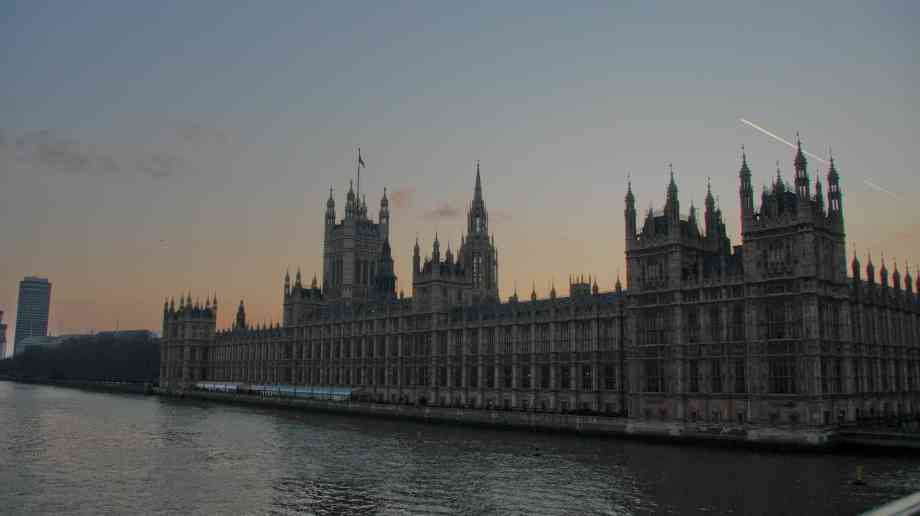Sue Robb of 4Children talks to Julie Laughton and Alison Britton from the Department for Education about the role of childminders in delivering the 30 hours free entitlement.
Global dissatisfaction with democracy at record high

A new report by the Centre for the Future of Democracy has found that dissatisfaction with democracy has reached an all-time global high.
The centre, based at the University of Cambridge, reports that Westminster-style democracies, as seen in the UK, Australia, Canada, New Zealand and the US, typically fare particularly badly in terms of democratic faith, with the proportion of citizens dissatisfied with the performance of their democracy doubling since the 1990s.
Specifically this proportion increased by around a fifth (18 percentage points) since then in the UK.
The economic crisis and growing within-country regional inequality are understandably deemed important factors behind decreasing satisfaction with democracy. But the Centre for the Future of Democracy’s report also suggests that ‘satisfaction with democracy is lower in majoritarian 'winner-takes-all' systems than in consensus-based, proportionally representative democracies’. The adversarial mentality inherent in the outdated First Past the Post voting system found in Westminster-style democracies contributes to polarisation and tribalism, making citizens less willing to compromise and to accept the mandate of rival political parties or viewpoints.
In contrast, New Zealand is the only Westminster-style democracy to have avoided the trend of ever-increasing public discontent, which the author's say is likely a result of having introduced a fairer voting system in the 1990s.
The 2019 General Election saw the views of almost 14.5 million voters (45.3 per cent of all electors) go unrepresented, while unelected legislators continue to be appointed to the House of Lords, without a mandate from, and no accountability to, citizens. The Electoral Reform Society says that this broken Westminster system – 'with its power-hoarding tendencies, over-centralisation and short-term policy-making' – are at the root of most of this dissatisfaction and lack of trust.
The ERS says that we must shift away from the centralised ‘Westminster model’ of governance, towards a consensus model which would include a move towards proportional elections for both chambers; decentralising power and sharing it across our nations and regions; and ensuring that citizens are engaged and empowered with a genuine voice over their democracy.
The organisation is calling for: proportional representation, House of Lords reform, a national Constitutional Convention led by citizens and more use of Local Citizen's Assemblies.
The UK remains the only country in Europe to use First Past the Post. The ERS advocates the use of the Single Transferable Vote (STV), which maintains both proportionality and a constituency link. A second chamber elected on a territorial basis to serve as a forum in which the four nations can work together in the 21st century, and scrutinise and revise the work of the government and the House of Commons. A national Constitutional Convention led by citizens should consider constitutional issues (including devolution), building upon the work of local citizens’ assemblies and other deliberative democratic processes to give people a say on how they are represented. Lastly, the ERS stresses that we need to bring politics closer to people and foster bottom-up citizen involvement at the local level to ensure trust in our democracy. Citizens’ assemblies should be used at the local level in a systematic and embedded manner to deal with complex and contested issues.
Company Focus
Located in Bromley, Japanese Knotweed Eradication Ltd has been providing solutions in the treatment and removal of Japanese Knotweed (Fallopia Japonica) for over a decade. During this time we have mastered a repertoire of methods, from herbicidal treatments to landscaping solutions, tailored to address the unique challenges our clients face with this pervasive weed.
Event Diary
UKREiiF has quickly become a must-attend in the industry calendar for Government departments and local authorities.
The multi-award-winning UK Construction Week (UKCW), is the UK’s biggest trade event for the built environment that connects the whole supply chain to be the catalyst for growth and positive change in the industry.
Supplier Profiles
Geo Energy
At GeoEnergy Design, we're on a mission to disrupt the traditional way heating and cooling ha
Latest Features
Professor Harith Alani, director of the Knowledge Management Institute at the Open University explains how AI can be used for good and bad.
Alex Lawrence, head of health & social care, techUK sets out techUK’s Five Point Plan for CareTech.

















